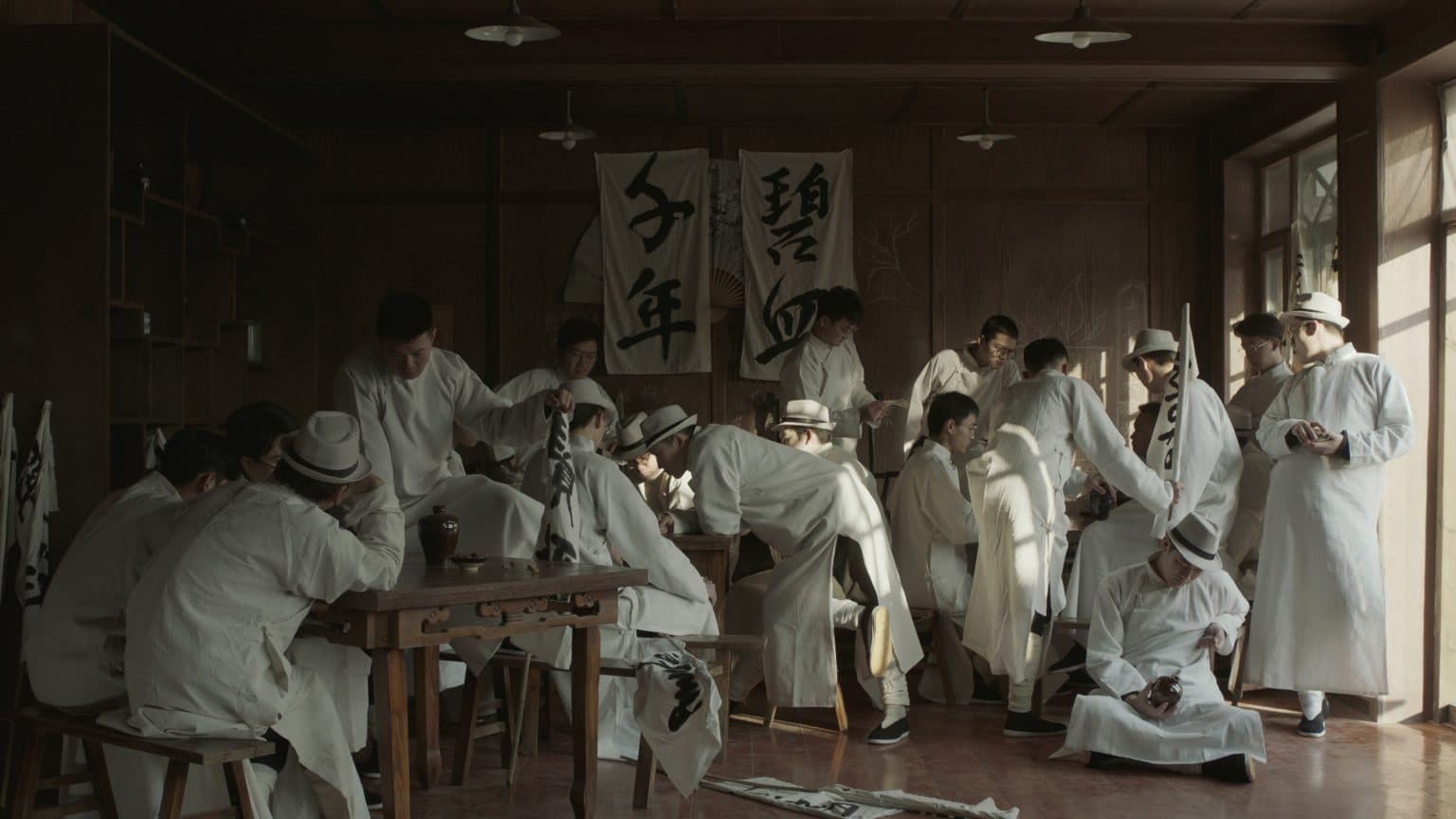Tungus通古斯
One of the primary historical contexts for Tungus is the “Siege of Changchun,” a hidden history of the 1948 Kuomintang-Communist Civil War that neither side would like to recall. In this quiet war without fire and smoke, hundreds of thousands of civilians, caught in the middle ground of beliefs and ideologies created by the military encirclement of the two armies, vanished in a primitive way – by starvation. In this film, as two soldiers from the Korean Independent Division of the Chinese People’s Liberation Army try to flee Changchun, they gradually realise that they are in an overlapping time and space with that of Jeju Island, where the “Jeju uprising” has just occurred in the shadow of the Korean War. At the same time, a middle-aged scholar who refuses to flee the city of Changchun returns to the May 4th Movement of 1919 in an illusion caused by extreme hunger and subsequently makes new resolutions. In these forgotten historical narratives, Wang Tuo illustrates how hunger-led hallucinations from a shared mass experience lead to a collective conversion to “Pan-shamanism.” In this conversion, he sees the Northeast Asian reality being reshaped by the power of the psyche mired in historical trauma. At the same time, the root of contemporary geopolitical dilemmas in Northeast Asia, buried deep in its recent history, are gradually unfolded and retraced.
影像“通古斯”中,一個主要的歷史背景是1948年國共內戰中一個被雙方都不願意提起的隱秘歷史——“長春圍城”。在這場安靜的沒有硝煙的戰爭中, 數十萬計的平民在國共兩軍內外軍事包圍圈所形成的一個信仰與意識形態的中間地帶裡,以原始的方式——飢餓——消散。影片中,試圖逃離長春的兩個隸屬中國解放軍朝鮮獨立師士兵,逐漸意識到自己所處的時空已經與彼時處於韓戰陰影下剛剛發生了“濟州島事件”的濟州島相重疊。與此同時,一個拒絕逃離長春城的中年學者,在極端飢餓的幻覺中重回1919年五四運動,並作出了新的抉擇。在這些幾乎不被歷史看見的敘述中,王拓在龐大人群共同經歷的飢餓導致幻覺,幻覺導致集體的“泛薩滿性”轉化中,看到一個被深陷歷史創傷中的心靈力量所重塑的東北亞現實。與此同時,當代東北亞地緣政治困境所深埋於其自身近代史的根源被展開與回溯。
about the artist /
Wang Tuo (b. 1984, Changchun, China) interweaves Chinese modern history, cultural archives, fiction and mythology into speculative narratives. Equating his practice to novel writing, he stages an intervention in historical literary texts and cultural archives to formulate stories that blur the boundaries of time and space, facts and imagination. His work spans across film, performative elements, painting and drawing. The multidimensional chronologies he constructs, interspersed with conspicuous and hidden clues, expose the underlying historical and cultural forces at work within society. Embracing a uniquely Chinese hauntology, Wang proposes “pan-shamanization” as an entry point to unravel the suppressed and untreated memories of 20th century China. Through historical inquiry, Wang’s works, often unsettling and dramatic, disentangle collective unconsciousness and historical traumas. His more recent work critiques contemporary conditions of censorship, more specifically the tensions within the push and pull between artist and authority.
Wang has recent solo shows at UCCA, Beijing; Present Company, New York; Salt Project, Beijing; Taikang Space, Beijing, and recent group shows at National Museum of Modern and Contemporary Art, Seoul; Julia Stoschek Collection, Düsseldorf; Staatliche Kunsthalle Baden-Baden, Baden- Baden; Queens Museum, New York; Zarya Center for Contemporary Art, Vladivostok; 13th Shanghai Biennale, Shanghai; OCAT, Shenzhen & Shanghai; How Art Museum, Shanghai; Times Museum, Guangzhou; National Taiwan Museum of Fine Arts, Taichung.
Wang Tuo was an Artist in Residence at the Queens Museum, New York from 2015 to 2017. He won the China Top Shorts Award and the Outstanding Art Exploration Award for Chinese Short Films in Beijing International Short Film Festival 2018. Wang Tuo is the winner of the Three Shadows Photography Award 2018 and the Youth Contemporary Art Wuzhen Award 2019. He was awarded a research residency at KADIST San Francisco 2020.
vmac archived / artworks from the artist
All copyright reserved by the artist. 作品版權歸藝術家所有。
For enquires, please contact [email protected]
